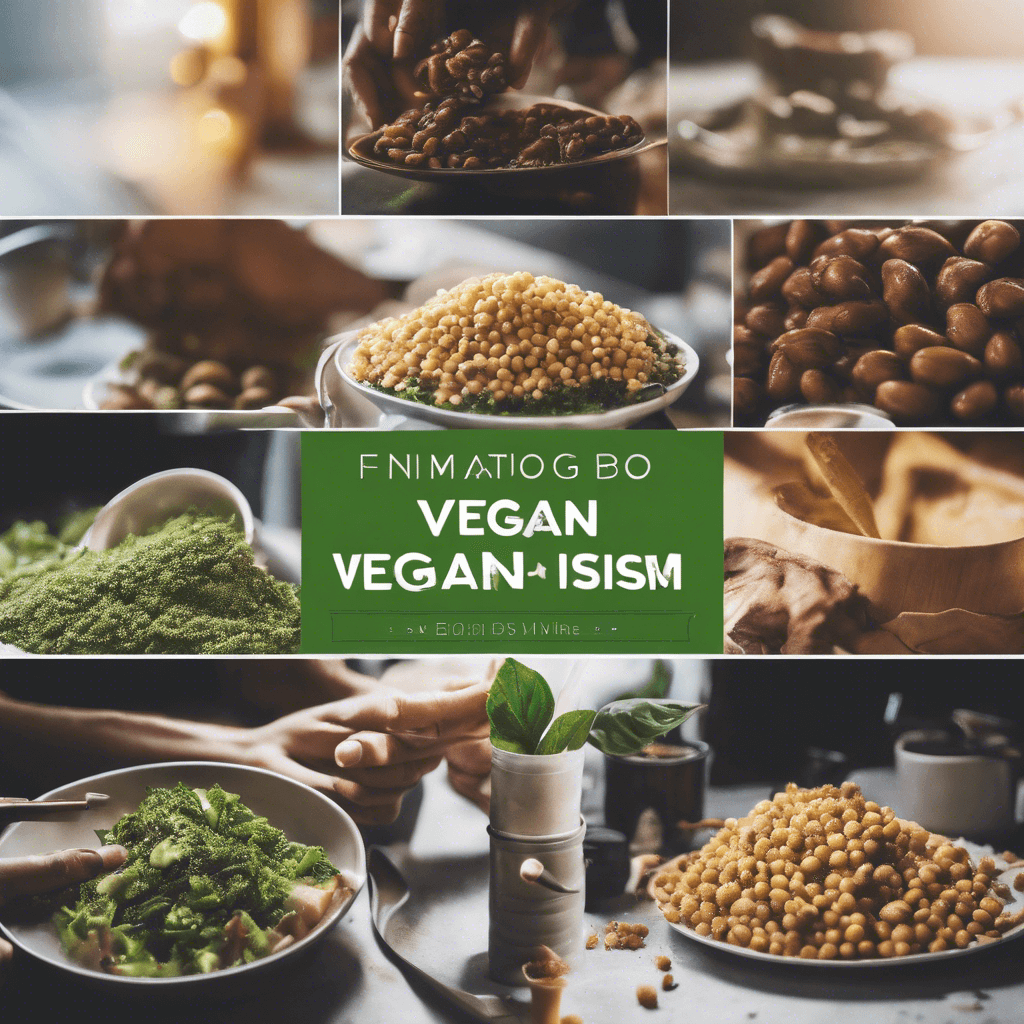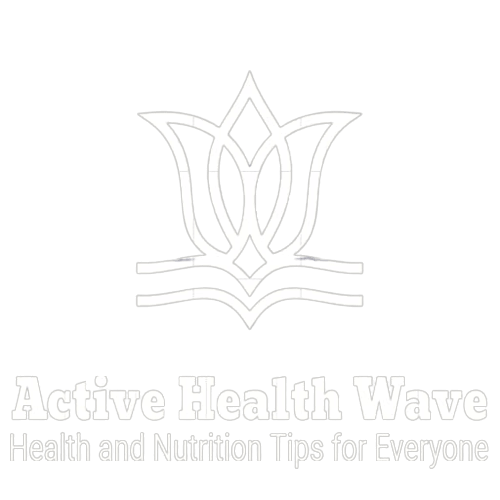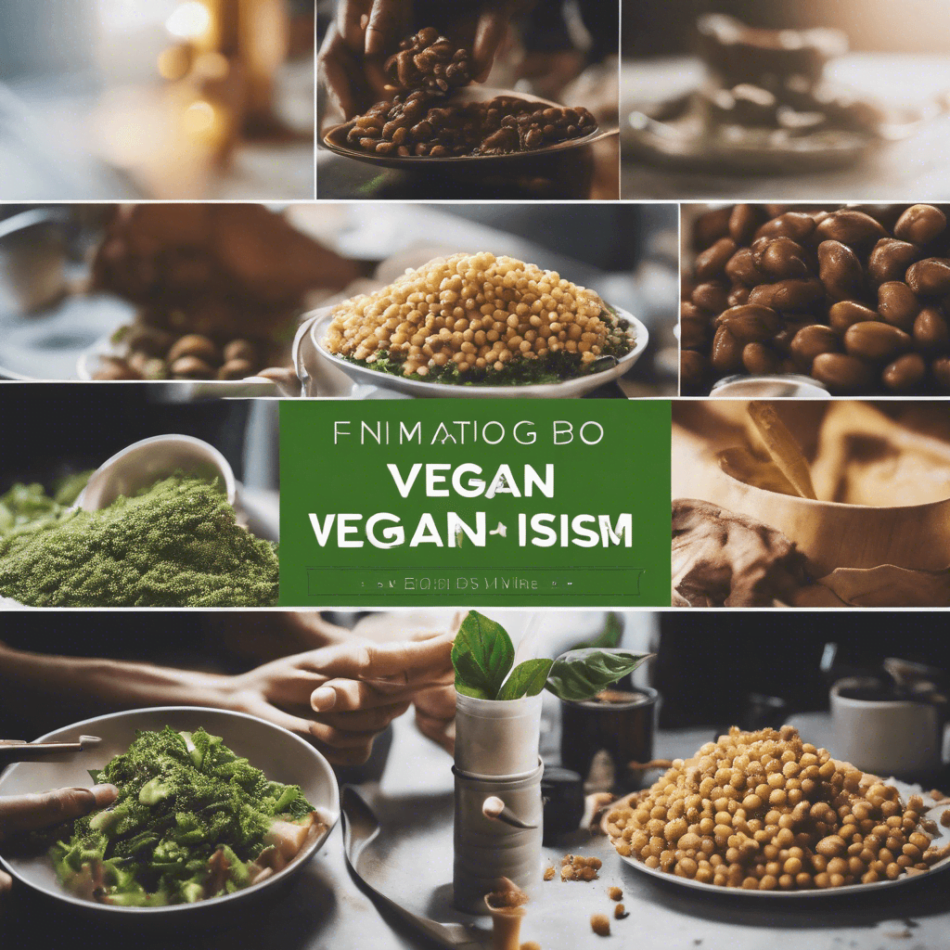Navigating Veganism: A Comprehensive Guide aims to provide you with all the information you need to understand and adopt this lifestyle.
Why Veganism is Gaining Popularity in the Health and Fitness World
In recent years, veganism has become a buzzword in the health and fitness industry. With its numerous health benefits and positive impact on the environment, more and more people are embracing this plant-based lifestyle. Navigating Veganism: A Comprehensive Guide aims to provide you with all the information you need to understand and adopt this lifestyle. Whether you are a seasoned vegan or just curious about the benefits, this guide is for you.
The Consequences of Veganism: A Paradigm Shift in Health and Wellness
Veganism is not just a diet; it’s a way of life that promotes compassion towards animals and the environment. In this veganism guide, by eliminating animal products from your diet, you are reducing your carbon footprint and contributing to a more sustainable planet. Additionally, veganism has been linked to various health benefits, including weight loss, improved heart health, and reduced risk of chronic diseases such as diabetes and certain types of cancer.
The Advantages of Embracing a Vegan Lifestyle
Improved Heart Health: A vegan diet is naturally low in cholesterol and saturated fats, which are known to contribute to heart disease. By eliminating animal products and focusing on whole plant foods with this veganism guide, you can lower your risk of cardiovascular problems.
- Weight Loss: Many people turn to veganism as a means of shedding excess pounds. Fruits, vegetables, whole grains, and legumes are all low in calories and high in fiber, making them ideal for weight management. Additionally, plant-based diets tend to be more filling, reducing the likelihood of overeating.
- Increased Energy Levels: Plant-based foods are rich in essential nutrients, vitamins, and minerals that provide sustained energy throughout the day. Unlike processed foods that can cause energy crashes, a vegan diet keeps you feeling energized and focused.
- Reduced Inflammation: Animal products, especially red meat, have been linked to inflammation in the body. By adopting a vegan lifestyle as explained in this veganism guide, you can reduce inflammation and potentially alleviate symptoms of conditions such as arthritis and inflammatory bowel disease.
- Lower Risk of Chronic Diseases: Studies have shown that vegans have a lower risk of developing chronic diseases such as type 2 diabetes, high blood pressure, and certain types of cancer. The abundance of antioxidants and phytochemicals found in plant-based foods helps protect against these diseases.
Veganism is a lifestyle and dietary choice that abstains from the use of animal products. Embracing a balanced vegan diet involves thoughtful food substitutions to ensure all essential nutrients are obtained from plant-based sources.
Key Nutrient Substitutions
Protein: Vegans can easily meet their protein needs by incorporating plant-based protein sources into their diet.
| Animal-Based Protein | Vegan Alternatives |
|---|---|
| Chicken Breast | Tempeh or Tofu |
| Fish | Legumes (Lentils, Chickpeas) |
| Beef | Quinoa or Edamame |
Note: Tempeh, Tofu, Chickpeas and Edamame are high in Arginine, and might trigger herpes outbreaks. On the other hand quinoa and lentils are high in lysine, help the immune system to prevent herpes outbreaks, just like chicken, fish and beef.
Calcium: Vegans can maintain strong bones and teeth by opting for plant-based calcium sources.
| Dairy Products | Vegan Alternatives |
|---|---|
| Milk | Almond Milk or Soy Milk (fortified) |
| Yogurt | Coconut Yogurt or Almond Yogurt |
| Cheese | Nutritional Yeast or Vegan Cheese |
Note: Almond Milk, Soy Milk, Coconut Yogurt and Almond Yogurt are high in Arginine, and might trigger herpes outbreaks.
Iron: Vegans can ensure adequate iron intake by including plant-based iron sources in their meals.
| Red Meat | Vegan Alternatives |
|---|---|
| Beef | Spinach or Kale |
| Chicken Liver | Lentils or Beans |
| Shellfish | Pumpkin Seeds or Tofu |
Note: Spinach, Tofu and Pumpkin seeds are high in Arginine, and might trigger herpes outbreaks. Kale is safe.
Vitamin B12: Vegans should consider fortified foods or supplements to meet their vitamin B12 needs.
Examples of fortified foods:
-
- Fortified Breakfast Cereals
- Plant-Based Milk (fortified)
- Nutritional Yeast
Building a Balanced Vegan Plate
Creating a well-rounded vegan meal involves combining a variety of plant-based foods:
- Grains: Choose whole grains like quinoa, brown rice, or oats for sustained energy.
- Vegetables: Aim for a colorful mix to ensure a range of vitamins and minerals.
- Legumes: Incorporate beans, lentils, and chickpeas for a protein and fiber boost.
- Fruits: Include a variety of fruits to satisfy sweet cravings and provide essential nutrients.
- Nuts and Seeds: These are excellent sources of healthy fats, protein, and essential minerals, but usually high in Arginine, and must be combined with Lysine sources to prevent herpes outbreaks.
- Plant-Based Proteins: Tofu, tempeh, and edamame can add texture and protein to your meals.
- Healthy Fats: Avocado, olive oil, and nuts can contribute to a well-balanced vegan diet.
By adopting these veganism-friendly substitutions and building a diverse and colorful plate, individuals can easily achieve a balanced and nutritious vegan diet.
The Disadvantages of Going Vegan
While there are numerous advantages to embracing a vegan lifestyle, it’s important to be aware of potential challenges as well. Here are a few disadvantages to consider:
- Nutrient Deficiencies: A poorly planned vegan diet can lead to nutrient deficiencies, particularly in vitamin B12, iron, calcium, omega-3 fatty acids, and very notably according to the FDA and the Canadian Health Food Association, there is a risk of Foliate deficiency, whether you go vegan or not. It’s crucial to ensure you are getting these nutrients through fortified foods or supplements.
- Vegan diets incorporate more Arginine than Lysine which is prevalent in all meats, and diary, and this can result in outbreaks in people affected by Herpes. This requires to compensate with much more of Lysine rich sources, such as: Avocado, Lentils, Beets, Apples, and they may also have to cut on chocolate, nuts, and other high sources of Arginine.
- Social Challenges: Eating out or attending social gatherings may become more challenging as a vegan. Many restaurants and events may not offer vegan-friendly options, making it important to plan ahead or bring your own meals.
- Initial Adjustment Period: Switching to a vegan diet requires some adjustment, especially if you are used to consuming animal products regularly. It may take time for your taste buds and digestive system to adapt to the new way of eating.
Who Can Benefit from this Veganism Guide?
This comprehensive guide is intended for anyone interested in exploring veganism or looking to enhance their knowledge about this lifestyle. Whether you are seeking weight loss, improved health, or simply want to make a positive impact on the environment, this guide will provide you with the necessary tools and information to navigate the world of veganism successfully.
So, whether you are a fitness enthusiast, someone looking to improve their overall well-being, or simply curious about the vegan lifestyle, Navigating Veganism: A Comprehensive Guide is your go-to resource. Embrace the benefits of veganism and embark on a journey towards a healthier, more sustainable future.












